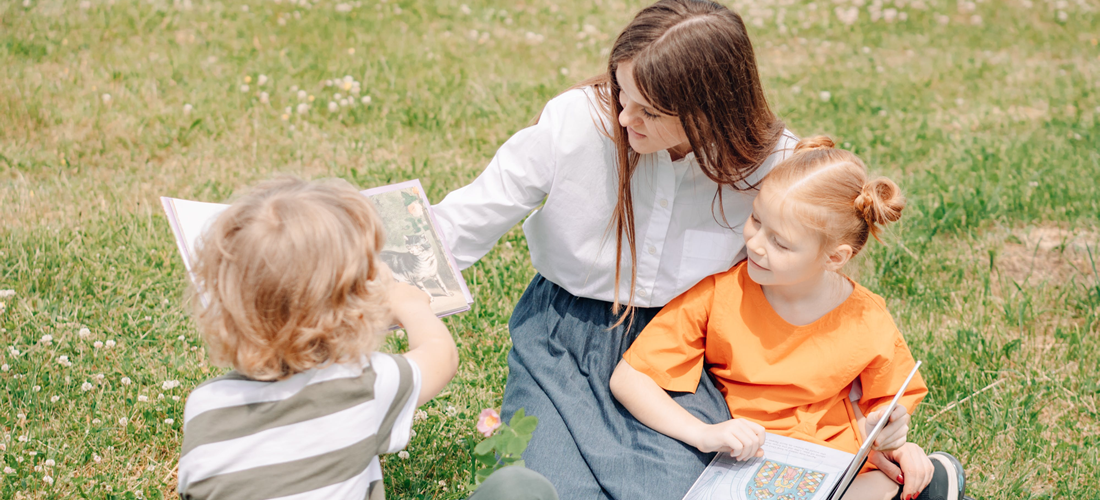Today, we’re diving into the eclectic world of homeschooling, focusing specifically on a unique approach known as the “unschooling” method. The “unschooling” method of homeschooling has been catching attention for its philosophies that break away from traditional schooling norms. It’s all about encouraging natural curiosity, fostering a love for learning, and allowing education to happen organically through life experiences.
Homeschooling, an educational alternative, is a realm where children are educated at home, often by parents but also by tutors. It is a highly personalized form of education, designed to meet the individual needs and interests of a child. Now, imagine an even more unconventional approach within the homeschooling sphere – welcome to the world of ‘unschooling’. This method is not merely about bringing school to home, but redefining education itself. Unschooled kids are given the freedom to explore their interests and learn at their own pace, unburdened by traditional school schedules or curriculums.
What is Unschooling?
Unschooling, in its simplest terms, is a form of homeschooling that puts the learning journey entirely in the hands of the learner. It eschews the traditional model of structured curriculum in favor of a learner-directed approach, where children choose what they want to learn, when they want to learn, and how they want to learn it. This method encourages self-discovery, independence, and a deep-seated love for knowledge.
The origins of the unschooling movement can be traced back to the educational reformer and philosopher John Holt. Dissatisfied with the rigid and inflexible educational system of the 1960s, Holt championed a new approach to education that prioritized the individual needs, interests, and curiosity of the child. He argued for a more natural and holistic approach to learning, which laid the foundation for what we now know as the unschooling movement. This method has since evolved and grown, remaining a compelling alternative to traditional educational models.
Key Principles and Philosophy Behind Unschooling
At the heart of unschooling lies the belief in the innate curiosity and ability of a child to learn. This philosophy is built on a few foundational principles:
- Child-Led Learning: In unschooling, the child takes the lead in their education. Rather than following a predetermined curriculum, the child’s interests and curiosity guide the learning process. This principle recognizes that individuals are more motivated to learn when they are engaged in subjects they are passionate about.
- Freedom and Autonomy: Unschooling promotes freedom and autonomy in learning. Children have the flexibility to explore topics at their own pace and in their own way. This principle is rooted in the belief that individuals learn best when they are in control of their educational journey.
- Trust in the Learning Process: Unschooling parents trust that children will naturally learn and acquire knowledge through their experiences. This principle challenges the traditional notion that learning must be structured and formal, asserting that meaningful learning happens organically when individuals are given the freedom to explore.
- Real-World Experiences: Unschooling places a strong emphasis on learning from real-world experiences. This could involve activities such as field trips, community involvement, internships, and hands-on projects. The goal is to connect learning to practical, everyday life, fostering a deeper understanding of the world.
- Individualized Education: Each child is seen as a unique individual with their own strengths, interests, and learning style. Unschooling allows for a personalized and tailored education that addresses the specific needs of the child, recognizing that a one-size-fits-all approach may not be effective.
- Integrated Learning: Unschooling blurs the traditional boundaries between subjects, encouraging the integration of knowledge. Learning is viewed as a holistic experience, and connections between different areas of study are emphasized. This approach promotes a more comprehensive understanding of concepts.
- Emphasis on Play: Play is considered a crucial aspect of learning in unschooling. It is seen as a natural and effective way for children to explore and understand the world around them. Play is not separate from learning but rather an integral part of the educational process.
- Flexible Scheduling: Unschooling rejects the rigid structure of traditional schooling in favor of a more flexible schedule. Learning can happen at any time and in any place, allowing for spontaneity and adaptation to the child’s interests and needs.
- No Formal Testing or Grading: Unschooling tends to avoid formal testing and grading. Instead of traditional assessments, learning is evaluated through observation of the child’s engagement, discussions, and the application of knowledge in real-life situations.
- Emphasis on Lifelong Learning: Unschooling aims to instill a love for learning that extends beyond formal education. The focus is on equipping individuals with the skills and mindset needed for continuous, self-directed learning throughout their lives.
How Unschooling Differs from Traditional Homeschooling
Comparison with Traditional Homeschooling Methods
While both unschooling and traditional homeschooling fall under the umbrella of home-based education, they differ significantly in their approach to learning. Traditional homeschooling typically mirrors the structure and content of a public school curriculum, with parents acting as teachers and implementing a predefined plan of study. It follows a specific schedule, with distinct subjects and time slots much like a conventional school setting.
In contrast, unschooling is a more fluid and flexible method of homeschooling, characterized by child-led learning. There’s no set curriculum or structured timetable. Learning in unschooling is driven by the child’s interests, curiosity, and daily experiences, rather than following a specific educational framework. It seeks to nurture a love of learning that extends beyond academic subjects, fostering creativity, critical thinking skills, and independence.
It’s also worth noting that while traditional homeschooling focuses largely on academic achievement, unschooling adopts a more holistic approach. It recognizes that valuable learning can come from all aspects of life, not just formal academics. So, while traditional homeschooling might have dedicated sessions for subjects like math or science, an unschooler might learn these concepts organically through activities like baking a cake or building a birdhouse.
Although both unschooling and traditional homeschooling share the common goal of educating children outside of the formal school system, their philosophies, methodologies, and outcomes can differ vastly. The choice between these two methods depends largely on individual family circumstances, the child’s learning style, and the family’s overall educational philosophy.
Emphasis on Child-Led Learning
In the unschooling method, the emphasis on child-led learning is paramount. This approach believes in the inherent curiosity and inquisitiveness of children, allowing them to lead their own educational journey.
Instead of being fed information, children are encouraged to explore, question, and learn at their own pace. This autonomous exploration enables them to discover their passions and cultivate deep, meaningful understandings of the world around them.
Unschooling operates on the belief that learning is as natural as breathing and doesn’t always have to be compartmentalized into subjects or confined to the pages of a textbook. Whether it’s a fascination with insects leading to a deep dive into biology, or a love for cooking fostering an understanding of measurements and chemistry, unschooling allows children to learn in a context that is relevant, practical, and enjoyable for them.
The Role of the Parent as a Facilitator Rather than a Teacher
In the unschooling method of homeschooling, the parent’s role shifts from that of a conventional teacher to a facilitator. Instead of dictating what and how to learn, parents provide the resources, support, and guidance for children to pursue their own interests.
This could involve setting up learning environments, providing tools and materials, or engaging in discussions that nurture a child’s curiosity. Parents might also introduce new concepts or ideas, but ultimately, the decision to explore these further lies with the child.
This approach fosters a sense of autonomy and self-motivation in children, empowering them to take ownership of their learning. The facilitator role also encourages parents to learn alongside their children, creating a vibrant, lifelong learning environment for the entire family.
Pros and Cons of Unschooling
Advantages
1. Fostering a Love for Learning
Unschooling, by allowing children to follow their curiosities and explore subjects of interest, inherently nurtures a love for learning. This method breaks away from the traditional, often rigid, structure of curriculum-based learning, replacing it with a dynamic and fluid learning experience.
The children learn not because they have to, but because they want to, which makes the process enjoyable and intrinsically rewarding. This enthusiasm towards learning often carries into adulthood, leading to lifelong learners who continuously pursue knowledge and personal growth.
2. Tailored Education to Individual Strengths and Interests
The unschooling method of homeschooling is a powerful tool for personalizing education. It enables parents to tailor learning experiences based on their child’s unique strengths, interests, and learning style. This flexibility allows children to delve deeper into areas they are passionate about, promoting high levels of engagement and motivation.
In a traditional school setting, children may be required to learn the same things, in the same way, regardless of their individual aptitudes or passions. Unschooling, on the other hand, acknowledges that each child is unique and learns in their own way. This method fosters an environment where children can excel in areas that they naturally gravitate towards, rather than being confined to a one-size-fits-all learning model.
The tailored education approach not only enhances learning but also boosts the child’s confidence and self-esteem.
3. Flexibility in Scheduling and Curriculum
One of the most significant advantages of the unschooling method of homeschooling is the flexibility it affords in both scheduling and curriculum. Traditional schooling operates on a fixed timetable, with specific subjects allocated to predetermined times. This schedule doesn’t always accommodate individual learning paces or rhythms. Unschooling, on the other hand, offers the freedom to learn at a pace that suits each child’s needs, during the hours when they are most receptive to learning.
Furthermore, the unschooling curriculum is not fixed or predefined. Instead, it evolves based on the child’s interests, curiosities, and natural progression. This adaptable curriculum encourages children to explore various subjects in depth and make connections between different areas of learning, leading to a more well-rounded knowledge base. It also allows for real-time adjustments, ensuring that learning remains relevant, engaging, and meaningful at all stages of the child’s development.
This flexibility in scheduling and curriculum not only ensures an individualized learning experience but also promotes a healthier balance between academic pursuits and other aspects of life, such as familial, social, and recreational activities. It acknowledges that valuable learning can occur outside of formal educational settings and weaves these experiences into the fabric of the child’s education.
Challenges
1. Lack of standardized assessments
One perceived disadvantage of the unschooling method of homeschooling is the lack of standardized assessments. Unlike traditional schooling systems, which frequently measure student progress and aptitude through exams and standardized tests, unschooling does not typically employ these formalized methods of evaluation.
As a result, some critics argue that it can be challenging to gauge a child’s academic growth and preparedness for future academic or career paths. This absence of measurable benchmarks may also lead to skepticism from proponents of traditional education, who may question the effectiveness and rigor of the unschooling approach.
While unschooling advocates argue that standardized testing does not capture a child’s full range of abilities or potential, this lack of universally recognized assessment standards remains a contentious issue within education circles.
2. Skepticism from Traditional Education Proponents
Another challenge faced by the unschooling community comes from the skepticism of traditional education proponents. These individuals, often seasoned in conventional educational frameworks, might find it difficult to understand the unschooling approach, raising concerns about its lack of structure and formal instruction. They may question if students can achieve the necessary knowledge and skills for their future without a set curriculum or professional educators.
This skepticism might extend to colleges and universities, potentially affecting unschooled students’ opportunities for higher education. While unschooling advocates argue that learners develop critical thinking, creativity, and independent learning skills, which are highly valued in today’s society, overcoming this skepticism remains a key challenge.
3. Potential Gaps in Certain Academic Areas
A significant criticism of the unschooling method of homeschooling pertains to the potential gaps in certain academic areas. Unlike traditional education systems that follow a comprehensive curriculum, unschooling allows the learner’s interests and curiosity to direct their learning. This approach could potentially lead to a lack of exposure to or neglect of certain disciplines that the student may not naturally gravitate toward.
For instance, a student interested in art might spend less time on science or mathematics, resulting in significant knowledge gaps in these areas. This could be a drawback, as a well-rounded education is often considered essential for personal growth and a broad understanding of the world.
Advocates of unschooling argue that if a topic becomes necessary or relevant for the learner, they will seek out and learn it. However, critics question whether this approach ensures a comprehensive educational experience.
Addressing Common Concerns
Addressing Concerns About Socialization
One of the most widespread concerns about the unschooling method of homeschooling is the issue of socialization. Critics often suggest that unschooled students may not have ample opportunities to interact with their peers, potentially leading to social isolation. However, this is not necessarily the case.
Unschooling families often engage in community activities, allowing children to interact and build relationships with individuals of varying ages and backgrounds. This includes participation in local events, sports clubs, art classes, and even volunteering. It’s also worth noting that many cities have homeschooling co-ops or groups where unschoolers can meet, collaborate on projects, and learn together.
In addition, unschooling families often travel, which exposes children to different cultures, customs, and people, enhancing their social and cultural awareness.
While unschooling does present unique socialization scenarios, it’s important to remember that social skills can be taught and nurtured in diverse environments, not just in traditional classrooms. Thus, addressing socialization concerns involves focusing on providing a variety of social interactions for unschooled children, in tandem with their academic pursuits.
Strategies for Documenting and Measuring Progress
Unschooling families may face challenges documenting and measuring academic progress due to the non-structured nature of this method. However, there are several strategies to effectively track a child’s learning journey:
1. Learning Journals or Portfolios: Unschoolers can maintain a learning journal or portfolio, documenting everything they learn, create, or explore. These may include photographs, artwork, writings, project reports, or any other evidence of learning. These journals serve as a tangible record of the child’s educational journey.
2. Regular Reflective Discussions: Regular reflective discussions between the parent and the child can be an effective way to assess what the child has learned. By discussing what they’ve experienced, children often reveal deep understanding and connections that they’ve made.
3. Project-based Assessments: Unschooling often involves project-based learning. The completion of these projects, and the skills acquired in the process, can provide concrete evidence of learning and progress.
4. Self-Evaluation: Encouraging children to evaluate their own progress can be highly effective. This not only helps measure learning but also promotes self-reflection and critical thinking skills.
5. Utilizing Technology: Various educational software and online platforms provide progress tracking features. These can be useful tools for unschoolers to document their learning journey.
Resources for Parents Considering Unschooling
For parents considering the unschooling method of homeschooling, there are a plethora of resources available to help navigate this unique approach to education:
1. Books: There are several informative books that delve into the principles and practices of unschooling. Some notable titles include “Teach Your Own: The John Holt Book of Homeschooling” by John Holt and “The Unschooling Handbook: How to Use the Whole World as Your Child’s Classroom” by Mary Griffith.
2. Online Communities: Online forums and social media groups, such as the “Unschooling” group on Facebook, provide a platform for parents to share experiences, seek advice, and get support. Websites like unschooling.com also offer a wealth of articles, blogs, FAQs, and discussions on unschooling.
3. Podcasts: Podcasts like “Exploring Unschooling” by Pam Laricchia offer insightful discussions on the practicalities of unschooling. They often feature interviews with experienced unschooling families and educators.
4. Local Meetups: Local homeschooling or unschooling groups can provide opportunities to meet like-minded families, partake in group activities, and learn from one another’s experiences. Websites like Meetup.com can help locate such groups.
5. Educational Consultants: Educational consultants specializing in homeschooling and unschooling can provide personalized advice and guidance. They can help devise learning plans, suggest learning resources, and offer solutions to specific challenges.
6. Workshops and Conferences: Various organizations, such as the Homeschool Association of California, offer workshops and conferences on unschooling. These events can be invaluable for gaining in-depth understanding and networking with other unschooling families.
Tips for Getting Started with Unschooling
Getting started with unschooling can be an exciting but also challenging endeavor for families. Here are some tips to help ease the transition into the unschooling method:
- Understand the Philosophy: Before diving into unschooling, take the time to thoroughly understand the philosophy and principles behind it. Familiarize yourself with the idea of child-led learning, autonomy, and the belief in natural curiosity.
- Identify Your Child’s Interests: Begin by observing your child’s interests, passions, and natural curiosities. This forms the foundation for the unschooling journey. Take note of what excites them and what they naturally gravitate towards.
- Create a Supportive Environment: Establish an environment that encourages learning. This might include having a variety of books, art supplies, educational games, and resources readily available. Consider how to make your home a place where curiosity is sparked.
- Build a Network of Support: Connect with other unschooling families or homeschooling communities. Sharing experiences, ideas, and resources can provide valuable support and encouragement. Attend local meet-ups, join online forums, and participate in social events.
- Trust the Process: Trust in the learning process. It’s normal to feel uncertain or anxious about deviating from traditional educational methods. Allow yourself and your child the time to adapt and discover the joys of unschooling.
- Facilitate Learning Opportunities: While unschooling is child-led, parents play a crucial role as facilitators. Be attuned to your child’s interests and provide opportunities for exploration and learning. This may involve outings, visits to museums, attending workshops, or connecting with experts in certain fields.
- Document and Reflect: Keep a journal or portfolio to document your child’s learning experiences. This can help you track progress and identify areas of interest. Reflect on what works well and be open to adjusting your approach based on your observations.
- Embrace Flexibility: Unschooling thrives on flexibility. Allow for spontaneous learning opportunities and be open to adjusting plans based on your child’s interests and evolving passions. Flexibility is a key aspect of adapting to the dynamic nature of unschooling.
- Encourage Curiosity and Questions: Foster an environment where questions are encouraged and curiosity is celebrated. Be open to exploring answers together and consider every question as an opportunity for learning.
- Balance Structure and Freedom: While unschooling provides a high degree of freedom, some level of structure can be beneficial. Find a balance that works for your family, providing enough guidance to support your child’s learning journey without stifling their autonomy.
- Stay Informed: Keep yourself informed about educational resources, both conventional and unconventional. This knowledge can help you tailor the unschooling experience to meet your child’s needs and interests.
- Be Patient and Enjoy the Journey: Unschooling is a journey, not a destination. Be patient with yourself and your child as you navigate this unique approach. Celebrate the small victories and enjoy the learning adventure together.
Unschooling and the Future
The potential impact of unschooling on a child’s lifelong learning is profound. Emphasizing self-directed learning, the unschooling method can foster a deep-seated love for acquiring knowledge, setting a strong foundation for lifelong learning.
Children who are unschooled often develop a keen sense of curiosity and a natural eagerness to explore the world around them. This intrinsic motivation to learn can serve them well throughout their lives, going beyond academic pursuits to all areas of personal and professional development.
The flexibility and adaptability ingrained in unschooling may also help children to become resilient and resourceful adults, able to navigate challenges and adapt to rapidly changing circumstances. While it’s crucial to remember that unschooling, like any educational approach, does not guarantee specific outcomes, it certainly provides a unique and rich environment for nurturing lifelong learners.
The Evolving Landscape of Education and the Role of Alternative Methods
The landscape of education is continually evolving, fueled by technological advancements, shifts in societal attitudes, and a growing recognition of diverse learning styles and needs. This dynamic nature of education has brought forth a multitude of alternative methods, challenging the traditional one-size-fits-all view on schooling.
Unschooling, as a form of homeschooling, is one such alternative that has gained significant attention over the years. As an educational philosophy, this method emphasizes the learner’s interests, allowing them to learn at their own pace and in their own way. This learner-centric approach resonates with the modern perspective that education is not simply about memorizing facts and passing exams, but about nurturing a genuine love for learning and fostering the ability to think critically and solve problems.
In an increasingly complex and uncertain world, these skills are invaluable. The flexibility of unschooling, where learning is integrated with life, enhances adaptability – a trait crucial in today’s ever-changing society. While unschooling may not be the right choice for every family or learner, it is certainly a significant part of the broader mosaic of educational possibilities, reflecting the diverse needs and aspirations of today’s learners.
Closing Thoughts on the Unschooling Method of Homeschooling
Unschooling, an unconventional mode of homeschooling, serves as a beacon for those seeking a personalized educational journey. Rooted in learner autonomy, this method encourages exploration beyond the boundaries of traditional schooling. It fosters a love for learning by centering on the learner’s interests, enabling them to pursue knowledge at their own pace and in their own unique way.
The principle of unschooling is synonymous with adaptability. By seamlessly integrating learning into daily life, it cultivates versatile individuals ready to navigate the complexities of our fast-paced society. Unschooling may not cater to every learner’s needs, but it undeniably amplifies the spectrum of educational choices, reflecting our society’s diverse learning needs and ambitions.
As we stride into the future, it’s worth remembering that each learner is unique, brimming with their own set of interests, strengths, and aspirations. The conventional schooling system, with its one-size-fits-all approach, may not be the best fit for every child.
This is where alternative educational methods, like the unschooling method of homeschooling, come into play. By focusing on learner-led education, they offer a fresh, engaging approach to learning that could unlock your child’s true potential.
Unschooling’s transformative potential lies in its dedication to reshaping the way we think about education. Unschooling is a testament to the idea that learning isn’t confined to the four walls of a classroom, nor should it be dictated by an external authority.
Adopting the unschooling method of homeschooling might seem like a drastic step, but it could be the key to unlocking your child’s untapped potential. By nurturing their inherent enthusiasm for learning and empowering them to follow their interests, you could foster not just a well-educated individual, but a lifelong learner. And in an ever-evolving world, isn’t that what we truly need?



